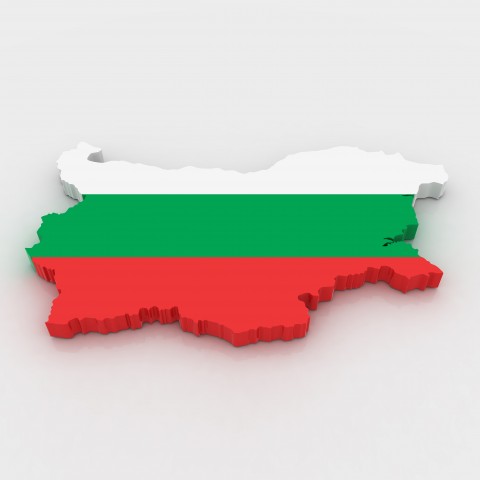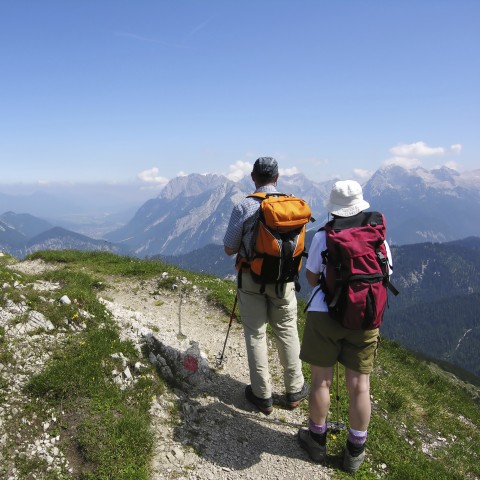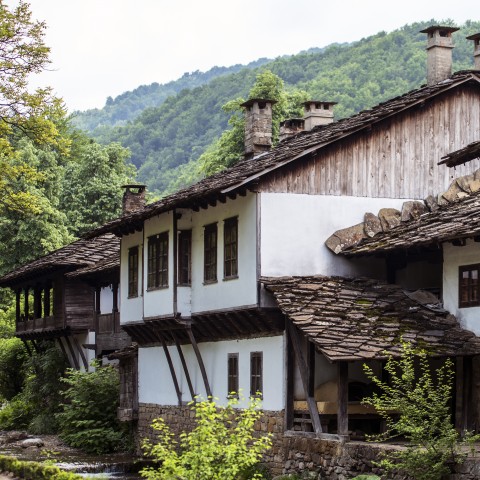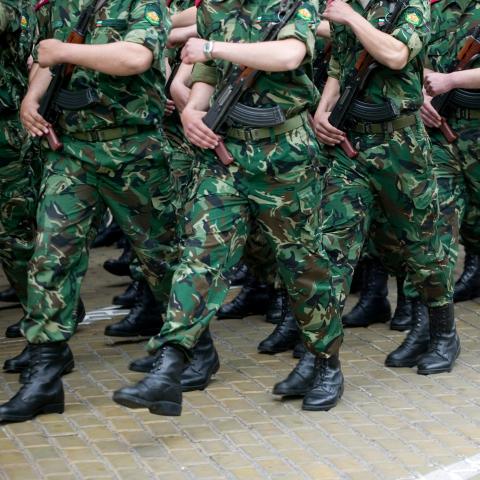
Did you know that the oldest national anthem is considered to be the Dutch Wilhelmus, written between 1568 and 1572? Well, compared to it, the Bulgarian national anthem is rather new. In this detailed review prepared by BulgarianPod101 you will find out when it was written, what is the English meaning of its lyrics as well as some intriguing facts regarding its music.
Most anthems are hymns in style and the Bulgarian one is not an exception. In this guide, you will be able to learn what is the national anthem of Bulgaria and how both the lyrics and melody express the love of Bulgarian people for their own fatherland. Moreover, national anthems are something intimate for every nation. By getting acquainted with the Bulgarian anthem lyrics, you will be able to understand the soul of the Bulgarian people, their feelings, emotions, and also their devotion to their homeland. This will help you learn the Bulgarian language, as learning more about the country’s specific culture is an integral part of the language learning process.

 Table of Contents
Table of Contents
- Bulgarian National Anthem Lyrics in English
- Bulgarian National Anthem History
- List of Occasions When The Bulgarian National Anthem is Sung
- Prohibitions Related to the Bulgarian National Anthem
- How BulgarianPod101 Can Help You Learn Bulgarian
1. Bulgarian National Anthem Lyrics in English
Here are the Bulgarian national anthem’s lyrics, presented with the proper pronunciation and their English translation.
| Bulgarian text | Pronunciation | English translation |
| Горда Стара планина, до ней Дунава синей, слънце Тракия огрява, над Пирина пламеней. (Родино) Мила Родино, ти си земен рай! Твойта хубост, твойта прелест, ах, те нямат край! | Gorda Stara planina, do ney Dunava siney, slantse Trakiya ogryava, nad Pirina plameney. (Rodino) Mila Rodino, ti si zemen ray! Tvoyta hubost, tvoyta prelest, ah, te nyamat kray! | Proud Stara Planina, before it the Danube is blue, the sun shines on Thrace, over Pirin it flames. (Motherland) Dear Motherland, you are an earthly paradise! Your beauty, your charm, oh, they have no end! |
Let’s consider some specific details related to this hymn.

- Стара планина (Stara planina) Stara Planina is the longest and the largest mountain in Bulgaria.
- Дунав (Dunav) The Danube is the second longest river in Europe and separates the territory of Bulgaria and Romania before it flows into the Black Sea.
- Тракия (Trakiya) Thrace is a historical and geographical area in Southeastern Europe, which covers southern Bulgaria.
- Пирин (Pirin) Pirin is a mountain in southwestern Bulgaria, part of the Rila-Rhodope mountain massif, with the highest peak Vihren (2914.3 m).
- ➜ In this lesson, you can learn about Rila Mountain Range as part of the top 10 Bulgarian tourist destinations.
2. Bulgarian National Anthem History
Bulgarian anthem lyrics and music were written in 1885 by Tsvetan Radoslavov, who composed it on the way to the battlefield for the Serbo-Bulgarian War.
But let’s start with some pre-history of the current anthem adoption.
Since the Liberation of Bulgaria from Ottoman rule in 1878 up until 1964, Bulgaria has changed its national anthem many times. During the Third Bulgarian Kingdom, the “Shumi Maritsa” song was chosen as the national anthem. The lyrics were written by Nikola Zhivkov in 1876 with the final edit by the famous Bulgarian writer and poet Ivan Vazov in 1912, while its melody derived from a German folk song. The main theme of this anthem is the fight against the Ottoman rulers and the liberation of the country. It was last performed on January 1, 1947.
Between 1947 and 1950, the march “Our Republic, hello!” became a Bulgarian national anthem. In 1949, three famous Bulgarian poets, Elisaveta Bagryana, Nikola Furnadzhiev, and Mladen Isaev, started to write the verses of a new anthem with the title “Dear Bulgaria.” The main aim was to create an anthem that emphasized the fight for freedom and respect for all those who gave their lives for it. They were able to complete this task in 1950, and the new anthem was officially performed in 1951. However, ten years later, due to the closeness of the lyrics and melody to the Soviet anthem, the poet Georgi Jagarov proposed the idea that the song “Dear Motherland” (Mila Rodino) become the new anthem of Bulgaria.
In 1964, a commission was formed to discuss the approval of Mila Rodino as the Bulgarian national anthem. The composer Petko Staynov opposed the decision claiming that the melody was taken from a Jewish song. After expressing his opinion, Petko Staynov was removed from the commission and Mila Rodino became the national anthem.
Another great Bulgarian composer, Dobri Hristov, also mentioned that the melody is borrowed from a Jewish song. He also specified that in the Bulgarian song memory there are hundreds of melodies that are borrowed from other nations and have become an integral part of the Bulgarian musical heritage.

The original lyrics of the song Mila Rodino looked like this:
| Bulgarian text | Pronunciation | English translation |
| 1.Горда Стара планина, до ней север се синей Слънце Витош позлатява, към Цариград се белей Мила Родино, ти си земен рай! Твойта хубост, твойта прелест, ах, те нямат край! Хайде братя българи, към Балкана да вървим. Там се готви бой юнашки, за свобода, правдини. 2.Паднаха борци безчет,за народа наш любим.Майко, дай ни мъжка сила,пътя им да продължим! 3.Дружно братя българи, с нас Москва е в мир и бой! Партия велика води, нашият победен строй. | Gorda Stara planina, do ney sever se siney Slantse Vitosh pozlatyava, kam Tsarigrad se beley Mila Rodino, ti si zemen ray! Tvoyta hubost, tvoyta prelest, ah, te nyamat kray! Hayde bratya balgari, kam Balkana da varvim. Tam se gotvi boy yunashki, za svoboda, pravdini. Padnaha bortsi bezchet, za naroda nash lyubim. Mayko, day ni mazhka sila, patya im da prodalzhim! 3.Druzhno bratya balgari, s nas Moskva e v mir i boy! Partiya velika vodi, nashiyat pobeden stroy. | Proud Stara Planina, Next to it the North is blue, the sun shines on Vitosha, to Constantinople it flames. Dear Motherland, you are an earthly paradise! Your beauty, your charm, oh, they have no end! Come on, Bulgarian brothers, go to the Balkans. A heroic battle is being prepared there, for freedom, for justice. Countless fighters fell for our beloved people. Mother, give us masculine strength, to continue their path! 3. Come together, Bulgarian brothers, Moscow is with us in peace and war! A great party is leading our victorious lines. |
In these lyrics Vitosha Mountain is mentioned along with Constantinople which later were removed. Over the years the anthem’s lyrics were changed multiple times until 1990 when the current version of the anthem was adopted and stayed unchanged until now.
- ➜ You can learn more details about Vitosha mountain located next to the Bulgarian capital in this lesson, prepared by BulgarianPod101.
3. List of Occasions When The Bulgarian National Anthem is Sung
There are specific occasions when the National Anthem is performed. This list will help you learn where you can expect to hear the Bulgarian national anthem.
- ❖ During the celebration of the Bulgarian Liberation Day on March 3.
❖ Оn some Bulgarian national holidays, like The Day of Courage and the Bulgarian Army on May 6 or the New Year Celebration. Bulgarians start each new year with the Bulgarian national anthem instrumental followed by the Danube round dance.
❖ During the celebration of important historical figures like the Hristo Botev Day (and the Fighters for Freedom and Independence of Bulgaria) on June 2, the Vasil Levski Commemoration Day on February 19, etc.
❖ During the flag raising ceremonies of the Republic of Bulgaria.
❖ During the state and official visits as well as diplomatic or military ceremonies.
❖ Other official events of national importance at the initiative of state bodies.

The full version of the anthem “Mila Rodino”, which includes the first verse once and the chorus repeated twice, is performed during all these events. The short version of the national anthem is the verse and chorus performed once.
The short version of the Bulgarian national anthem can be performed on the following occasions: at cultural and sports events, and on occasions such as the opening of the school year.
The anthem of the Republic of Bulgaria can be performed only once a day, at the ceremonies described above.
4. Prohibitions Related to the Bulgarian National Anthem

An interesting fact is that there are some prohibitions on the use of the Bulgarian national anthem.
The anthem may not be used in advertising, except for national campaigns undertaken by the state authorities. The anthem may not be used as part of another melody or song. It is prohibited to be performed in remixed versions with lyrics other than legally established text or by means of musical instruments that create a humorous sound, with pauses, interruptions or extensions of the tones being played. It is prohibited to change the original sound of the anthems.
5. How BulgarianPod101 Can Help You Learn Bulgarian
This detailed Bulgarian national anthem review prepared by BulgarianPod101 is created to help you learn more about the most important hymn in the country – its anthem. The process of choosing this Bulgarian anthem says a lot about Bulgarian culture and way of life during the years after the Liberation from the Ottoman Empire in 1878. The more you know about the country, the easier it will be for you to understand the ethnopsychology of its people, as their language includes specific features of their culture.
Bulgarian language is not easy to study on your own and if you need professional guidance for this, you can find it in the MyTeacher section. Choose a professional native Bulgarian teacher who is not only able to teach Bulgarian but also will make the learning process easier by making his or her Bulgarian online lessons funny and easy to remember.
Now that you know the story behind the Bulgarian national anthem, we would be happy to receive your feedback about what impressed you the most about it, so feel free to share your thoughts in the comments below.












